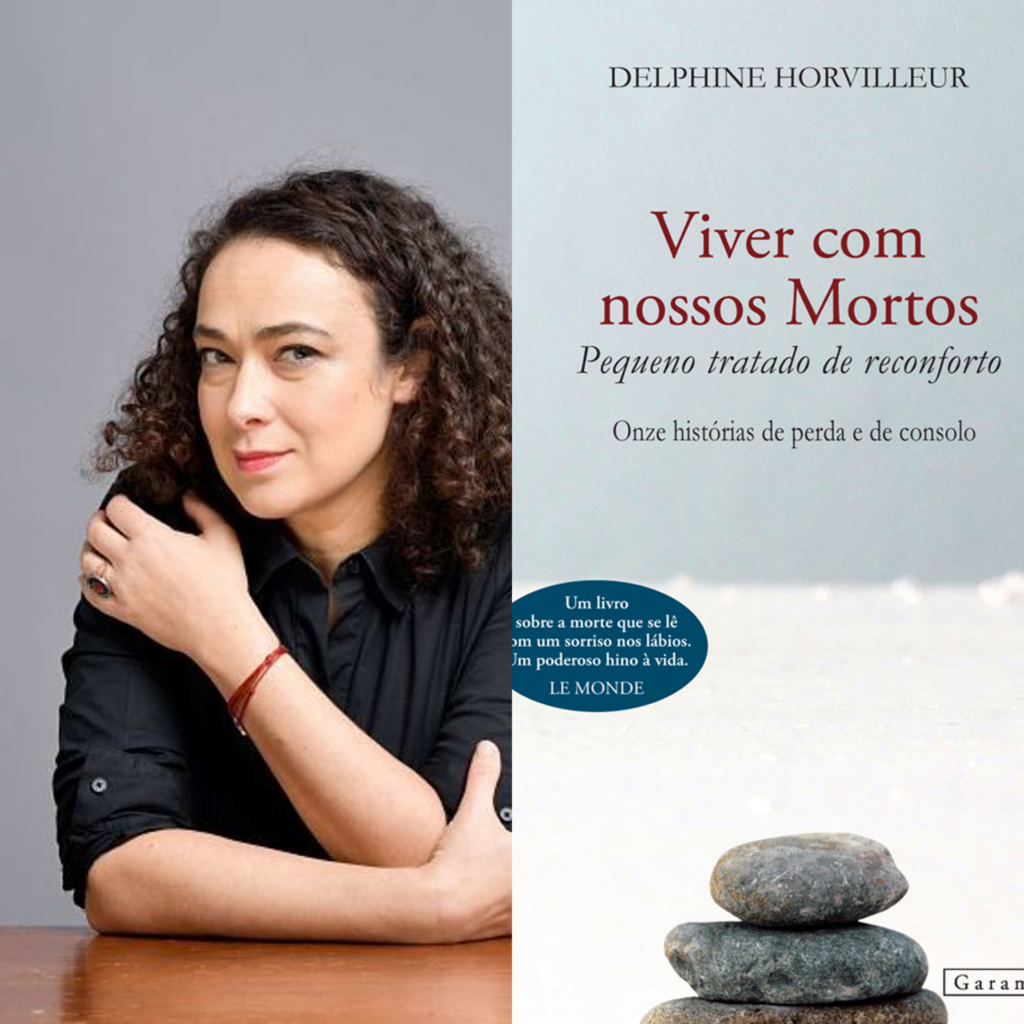A new literary work with international repercussions has hit Brazilian shelves, featuring reflections by the acclaimed French rabbi Delphine Horvilleur. With a translation sponsored by the Union of Reform Judaism in Latin America (UJR-AmLat), the Garamond publishing house has announced the publication of “Viver com nossos mortos”, which describes itself as a “small treatise of consolation”, talking about the mystery of death from the author’s experience as a rabbi: in moments of suffering and hopelessness, she resorts to traditional stories and the sacred texts of Judaism to elaborate, together with the bereaved, on this painful and inexplicable experience.
On the eve of her 50th birthday, Delphine Horvilleur is essentially a communicator. She studied medicine in Israel, worked as a journalist and TV news presenter before deciding to change her life and travel to New York to prepare for the rabbinate.
As a rabbi, Delphine Horvilleur faces the mystery of death on a daily basis. In order to accompany the dying and comfort those close to her, she tries to transfigure the inevitable by finding a meaning for that moment. To do this, she places herself at the side of women and men who “need stories in those crucial hours of their lives”. According to her, it is necessary to “know how to tell what has already been told a thousand times, but giving those who hear that story for the first time unprecedented access to take ownership of their own story.” Talking, comforting and reflecting on the only certainty we have in life – death – is not an easy task for any human being. But this is the burden that Rabbi Delphine has taken upon herself – and transformed into this book.
In “Viver com nossos mortos”, Delphine Horvilleur tells how she stands by the bereaved. She interweaves history (the experience of the rabbinate), reflection (Talmudic exegesis) and confession (personal memories) to compose a text that is at once moving, burlesque and academic. In eleven chapters, it tells us how we make sense of death through speech. The rabbi takes on the role of storyteller to think about and heal intimate and collective wounds. The essay was published in March 2021. It is received in a particular context: a third wave of the Covid-19 coronavirus affected France in early 2021. The author approached the universality of the experience of mourning and death, but also through the lens of a secularized Judaism to which all those who have lost someone have access.
Delphine Horvilleur gives Judaism an image other than that of a severe, self-segregating religion that is difficult to access. The doors of Jewish knowledge are opened through her words. The story largely transcends the question of a single religion. It echoes personal and also collective griefs, like those of Elsa Cayat or Simone Veil. The publication in Brazil of “Viver com nossos mortos” will certainly be a powerful basis for reflection on the mysteries of life and death – and a source of consolation and soul development, not only for the bereaved, but also for all of us who will one day face the process of mourning. But this time, with a Jewish lens.


